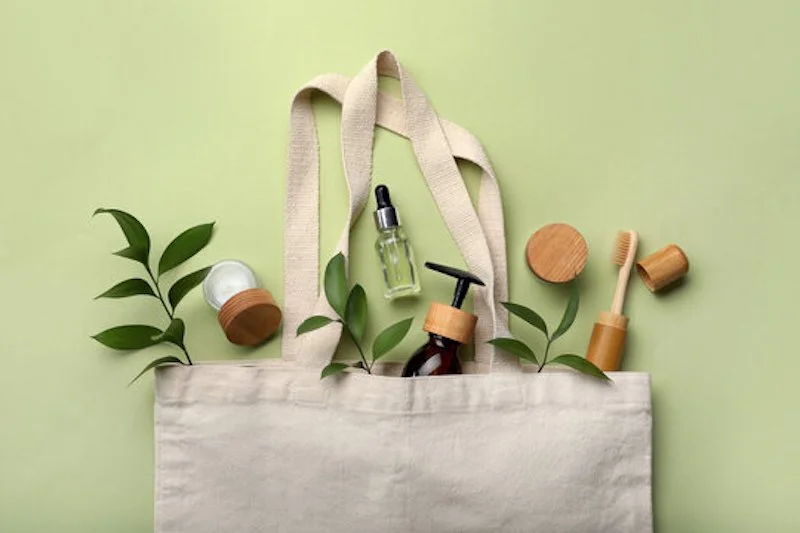Shopping for Sustainable Beauty
Image Courtesy: Adobe
What are we wearing this spring? This is a question I see constantly on social media. In one way, it can be taken as girls wanting to talk about products coming out and what they’re most recently into. On the other hand, it can be viewed as trying to buy into someone’s TikTok storefront or purchasing a product from a collab. In fact, skincare and makeup are some of the most common searches on TikTok—with shops like Shein, Lululemon, and Victoria's Secret also joining the ranks. It’s no secret that TikTok is one of the primary places where younger people go to search for new products, find product reviews or get an affordable dupe. But, with TikTok pushing out products for revenue, it can get people to buy products that aren’t that great for your skin or the environment.
Yes, it’s hard to find sustainable products today. But what constitutes a sustainable product, anyway? According to the dictionary, sustainability can be defined as an “avoidance of the depletion of natural resources to maintain an ecological balance.” A sustainable product would have as little environmental impact as possible in beauty products. This can be complicated for many products because sustainability encompasses everything about the product — starting with how it’s created, to how it is packaged and shipped to each customer.
Being sustainable doesn’t necessarily mean boycotting products entirely because of their impact on the environment. You, as a customer, have to consider other factors and nuances. For example, some products that may not be environmentally friendly, are the cheapest option for people. Another example could simply be that the products that work best on some people’s skin tend to be the ones that are not best for the environment either. In cases like these, it is hard to uphold the sustainability standards even if customers really want to.
However, it’s generally good practice to keep a conscious mind and know what your impact may be. An example of this is CeraVe. CeraVe is a reputable skincare company whose products work great on their customers (me included). However, after reading more about my products, I found that CeraVe was simply not a company that I wanted to continue buying from because of their lack of sustainability claims, cruelty-free claims, and other things. This is not a call to action on boycotting the brand entirely; but a mental practice on being aware of how our products and whether we decide to put them on our skin.
Take Summer Fridays, for example. They are a company that is not only vegan, paraben-free, sulfate-free, and cruelty-free, but the company makes an effort to urge its customers to recycle by offering a $25 gift card when customers return five empty products back to them. Unfortunately, it’s common for more sustainable companies to be more expensive, but I think that shows the homework needed for each purchase.
All in all, working towards a more sustainable future is difficult. It’s hard not to get wrapped up in trends and trying new things, but it is almost necessary now. We have to question whether its “essential” to have copious amounts of trending products — especially ones that do immense environmental damage.
Strike Out,
Writer: Chanel Thorpe
Editor: Annika Chaves
Boston.

